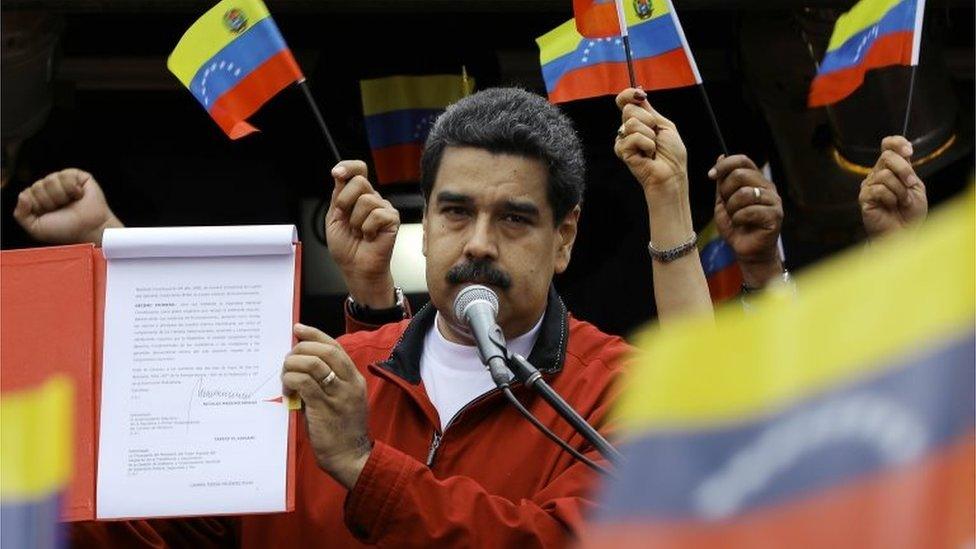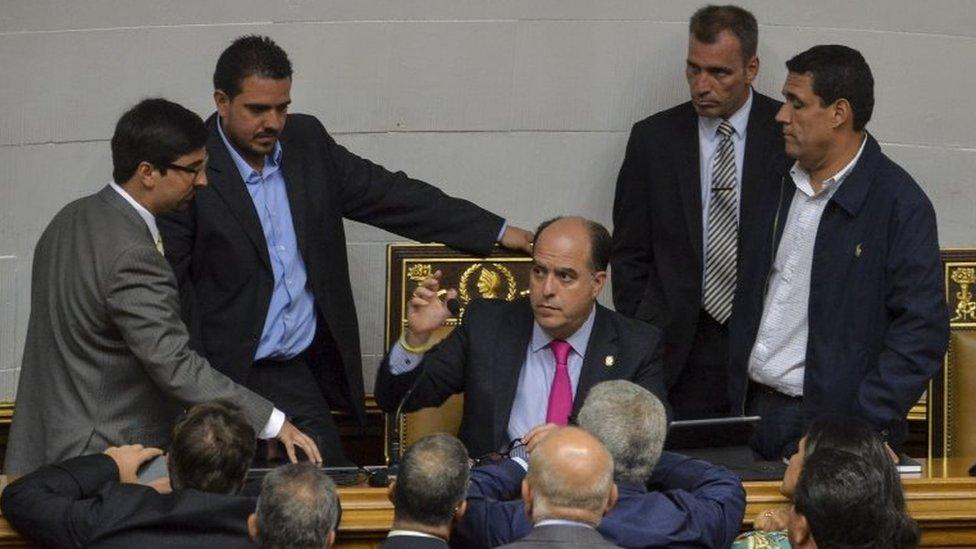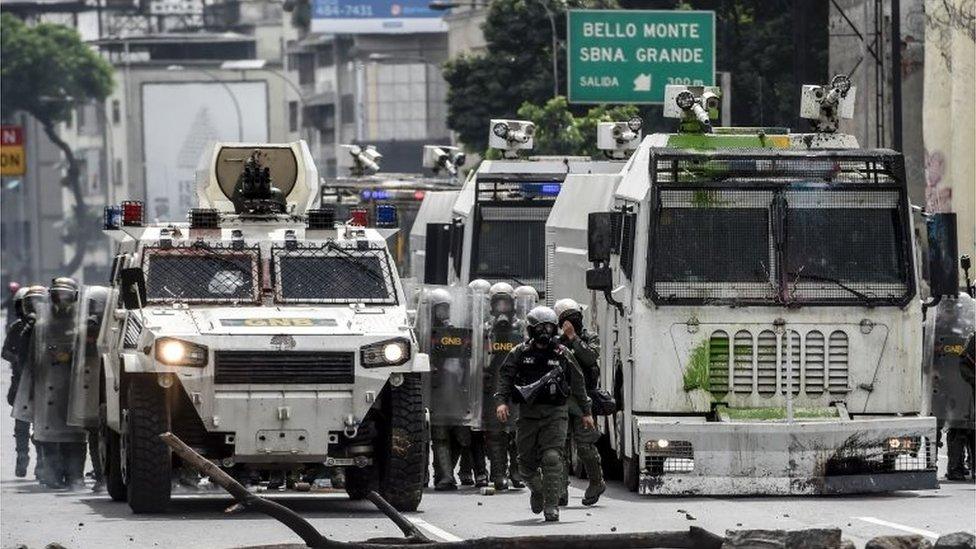Venezuela's Maduro presses on with constituent assembly
- Published

President Maduro signed a decree convening a constituent assembly
Venezuela's President Nicolás Maduro has pressed ahead with plans to create a citizens' assembly to draw up a new constitution.
Mr Maduro issued a decree to convene a constituent assembly amid continuing anti-government protests.
The president says a new constitution will bring peace to Venezuela, but the opposition says it is a ruse to delay holding elections.
More than 50 people have been killed in protest-related violence since 1 April.

Read more:


Mr Maduro signed the decree at a rally attended by thousands of his supporters.
He said the assembly would be made up of 540 members, some of whom would be elected at local level while the rest would be chosen from various groups such as students, workers, farmers, pensioners, and indigenous people.
The National Electoral Council later said that elections for the constituent assembly would be held at the end of July.
'Evil announcement'
The move was immediately denounced by the opposition-controlled National Assembly.
National Assembly leader Julio Borges called it "nothing more than an evil announcement meant to divide, distract, and confuse Venezuelans further".

Julio Borges (seated) says the constituent assembly is a "fraud"
He said there would be more "street action" and called for a march opposing the constituent assembly to be held on Wednesday.
Fifty-five people have been killed in protests since the beginning of April.
The unrest was sparked by a Supreme Court ruling on 29 March stripping the National Assembly of its powers and transferring those powers to the court.
The Supreme Court suspended the most controversial paragraphs three days later, but the ruling united the hitherto divided opposition and spurred them into action.

Anti-government protesters have been clashing with the security forces since the start of April
The opposition says the Supreme Court ruling and Mr Maduro's call for a constituent assembly are attempts by the president to cling on to power beyond the end of his term in 2019.
They say that he has become increasingly authoritarian since he was elected in 2013, blocking their attempts to hold a recall referendum and delaying elections for governors.
On Tuesday, National Electoral Council head Tibisay Lucena also announced that the gubernatorial elections would be held on 10 December, a year after they were originally due.
Some Venezuelans reacted on social media saying that they had lost all trust in the electoral body and demanded fresh general elections rather than regional polls.